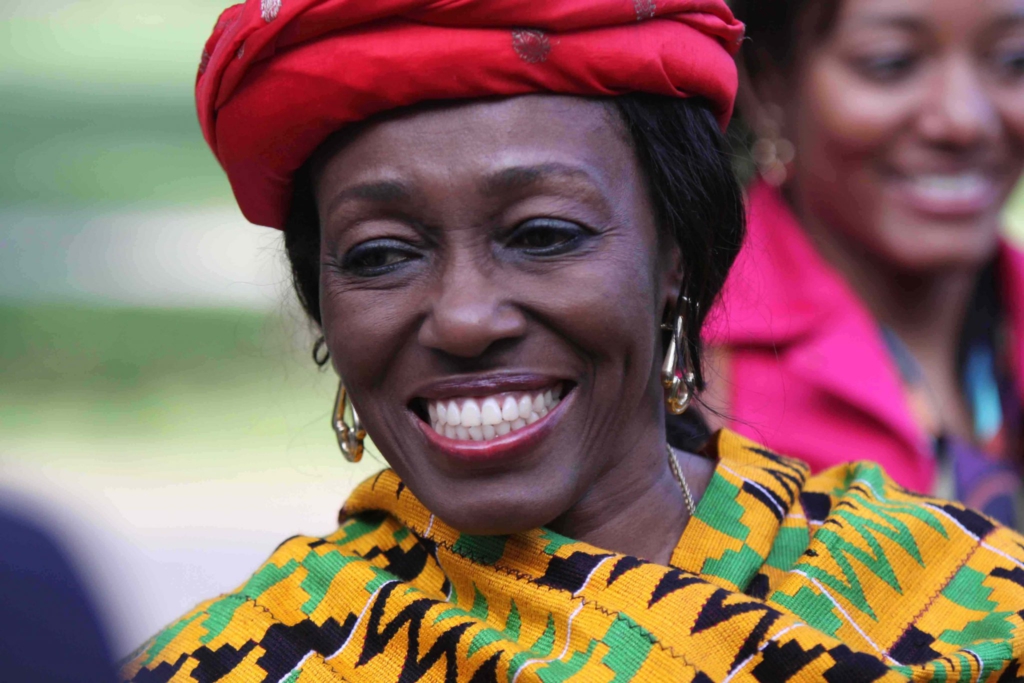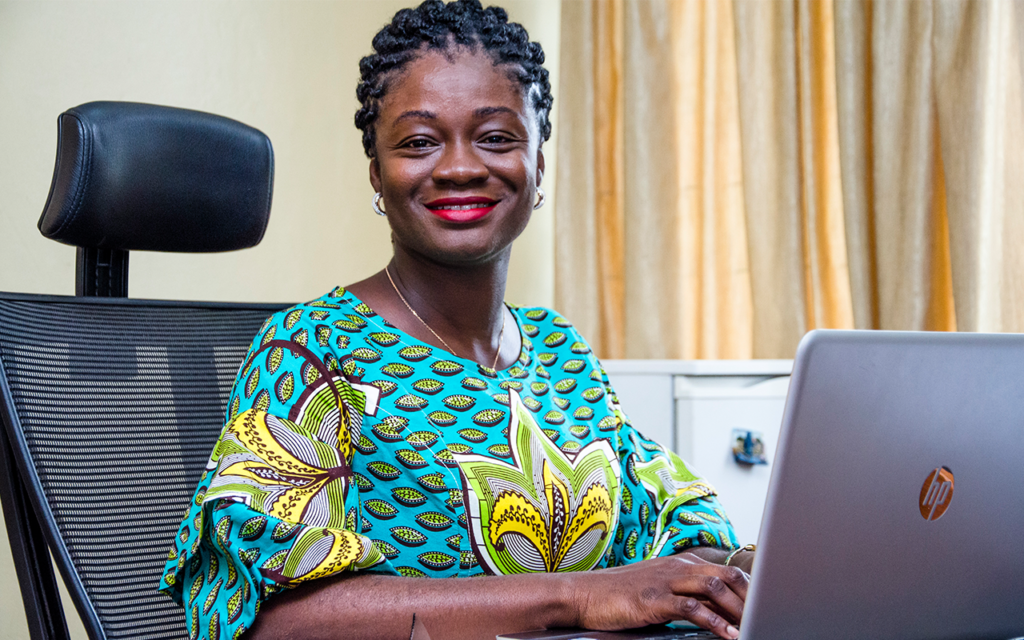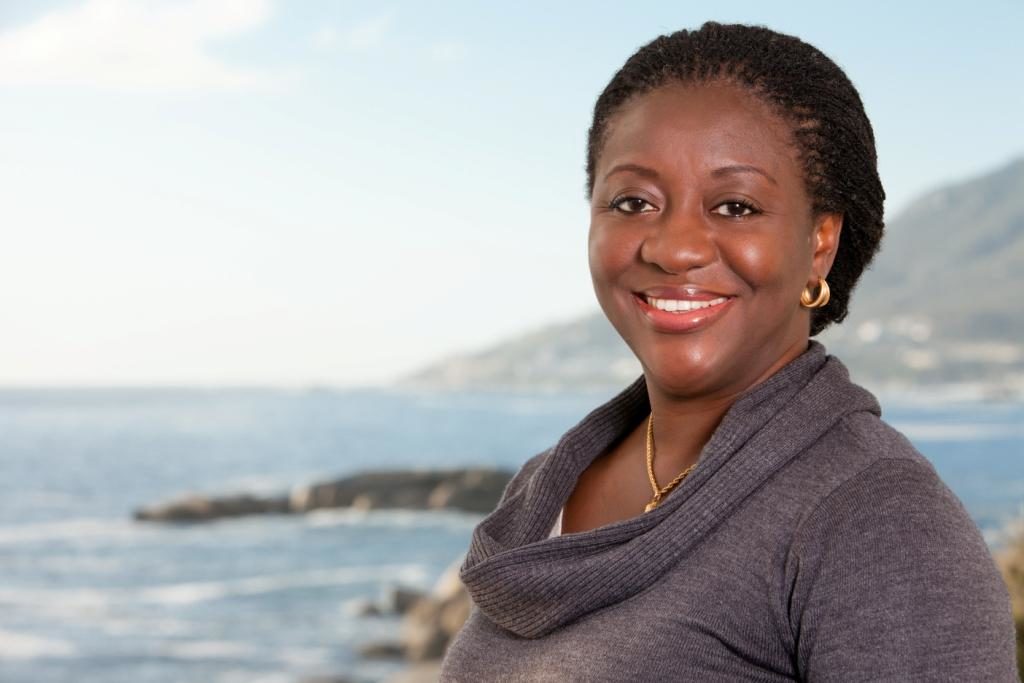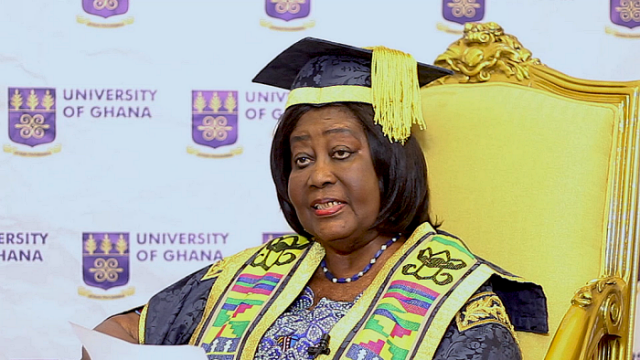The nation has to be intentional in implementing a sustained national agenda to encourage more women to take up leadership positions in various sectors of the economy, five women leaders have said.
They agreed that there should be a conscious effort to nurture and groom more females into leadership as the country strove to achieve accelerated development.
In their opinion, while women on their own could aspire to climb up the ladder, they would need the push and support to be successful.
The women leaders are the Chancellor of the University of Ghana, Mary Chinery-Hesse; a former First Lady and founder of the Developing Women for Mobilisation (DWM), Nana Konadu Agyeman-Rawlings; the Chief Executive Officer (CEO) of the Ghana Enterprises Agency (GEA), Kosi Yankey-Ayeh; the Director-General of Technical and Vocational Education Training (TVET) Services, Mawusi Nudekor Awity, and the 2020 Presidential Candidate of the Progressive People’s Party (PPP), Brigitte Dzogbenuku.
They were sharing their thoughts with the Daily Graphic on the commemoration of International Women’s Day (IWD) which is being marked today.
They maintained that although the country had made significant strides in pushing the women-leadership agenda over the years, more needed to be done in order to close the gender gap in terms of leadership roles in the country.
The women leaders, who also represent different sets of generations, stressed, however, that it was important for women to build their competence, skills and confidence in order to be supported to rise to the top.

Quota in governance
Sharing her thoughts on what could be done to bridge the gap of fewer women in governance, Mrs Chinery-Hesse urged the country’s political parties to consider giving quotas to women for top positions in governance and politics to promote more women in positions of authority.
She explained that the situation that prevailed currently where women had to contest top positions with men made them go through harrowing difficulties, including personal attacks.
“This, therefore, tends to discourage some of them, resulting in the current situation where we do not have enough women presenting themselves to contest for top positions,” she told Daily Graphic’s Augustina Tawiah.
“In Ghana, there are women who put themselves up to compete to go to Parliament. Talk to them and you will hear what they go through is terrible and that deters others from also putting themselves up for similar roles.
“However, if the parties have a quota system, it will help to overcome this particular problem. The political parties should have what I prefer to call ‘Women’s ticket’ so that the women would compete among themselves for positions,” Mrs Chinery-Hesse explained.
However, she emphasised that appointments should be based on skills and competence.
“Ghanaian women are very proud of themselves and hardworking and I think they can compete with the men. However, we should try the quota system. It is not bad,” she said.
Experiment
Mrs Chinery-Hesse, who worked with the United Nations (UN) and rose to become the first woman Resident Coordinator of the UN Systems and a Deputy Director-General of the International Labour Organisation (ILO), pointed out that some countries in East Africa, namely Tanzania, Uganda and Rwanda, had experimented with quotas for women, especially within the political sphere, and it helped.
In Rwanda, for instance, she said because of the quotas they now had more women in Parliament than men and that had gained so much attraction that it was no longer news or a surprise.
Mrs Chinery-Hesse added that if more Ghanaian women were to prove that they could do it on the same terms as the men, the more accepted they would become, for which reason any particular position that women attained would not be news.
Progress on women’s empowerment
Touching on the country’s progress made in mooting for women’s empowerment, Mrs Chinery-Hesse, who was the first female Chief Director of the Ministry of Finance and Development and in the Ghana Home Service, said even though the world was now better for women against harassment at the workplace, there was still a lot of work to be done.
Call to action
On how to get more women into top positions, the Chancellor of UG suggested that women should have a means of getting their own income in order that they could contribute to the family and themselves.
Additionally, Mrs Chinery-Hesse said society should create jobs for women, make sure the workplace was a happy place for them; one that could improve their lives and that of their families.
For her part, Mrs Yankey-Ayeh said women occupied many leadership positions but to increase the number to an appreciable level, the nation needed to be intentional about her approach, she told the Daily Graphic’s McClean Kwofi.

She said there was the need to identify the females early, mentor them through various training and provide solid guidance so that when given an opportunity they would excel and drive the growth of the economy.
Mrs Yankey-Ayeh led the successful transformation of the National Board for Small Scale Industries (NBSSI) into a bigger entity, now called the Ghana Enterprises Agency.
Challenges
Although women often faced a number of challenges in climbing both the academic and career ladder, Mrs Yankey-Ayeh said her story which spanned between Ghana and the United States, was rather different as her gender, complexion and continent of origin played positively to her advantage.
“My greatest asset was being a woman, black and African. It has opened doors for me in places that I would not have been accepted.
“However, the challenge now is when the door is opened for you, people then ask if it was opened because you are a woman or it’s on merit.
“As it is often said, you have the job now and so you need to prove yourself that you really deserve whatever door that has been opened for you.
“To be able to get more females to also take up similar roles, it is important that those of us who have the opportunity, discharge our duties honourably and professionally so that we send the right message that to have the opportunity, you have to be qualified and when given the opportunity, you surmount the challenges to prove equal to the task or responsibility,” she stressed.
GEA supports women
The CEO noted that the GEA was implementing a number of projects such as the Young Africa Works which was deliberately targeting 70 per cent women.
“We also have other projects supporting women who are the backbone of the Ghanaian economy.
“Up to 60 per cent of our beneficial in general are women and we provide them access to finance.
“Majority of the informal sector players are women and if we are able to scale up their operations, they will be able to support the economy positively,” Mrs Yankey-Ayeh said.
The value of women

The PPP’s 2020 presidential candidate, Ms Dzogbenuku, also urged women to take matters into their own hands and be the agents of change that society deserved instead of waiting to be called.
Speaking to Delali Sika, she said women controlled a lot of things and contributed so much to the growth of a country, stressing that it was wrong for them to sit down and be called before they took initiative.
“When it comes to women in leadership, at a point, it felt like we were picking up, growing, then we fell short again.
Being vocal
“Even though there is more room for improvement we must be more vocal. Women by themselves should be more vocal, let us get up and speak up, not to be quiet; we need to let them know that we can lead, we are also capable and indeed we can,” Ms Dzogbenuku stressed.
The former beauty queen and business executive noted that when women understood how powerful they were, they would know their value.
“Women control a large part of our economy. When you look at our economic activity and big markets, it is predominantly women, so we control a lot and contribute a lot. What we don’t realise is our worth and so we are reluctant to make our voices heard.”
Challenge
With a quote from Charlotte Whitton, that says, “Whatever women do, they must do twice as well as men to be thought half as good. Luckily, this is not difficult”, she admitted that occupying leadership positions as a woman was very tough.
“It is not easy, I must say, and the challenge is not that we are not good enough. Rather, just by virtue of nature that we are women, we have to work to dispel that notion. Even in places where people recognise you as a leader, for example, a presidential candidate, they still have their misgivings and will question the fact that you are a woman and you are soft.
“We need some kind of extra-thick skin in order to survive. They judge us by our looks and how we dress instead of our competence,” Ms Dzogbenuku added.
Women in TVET
The DG of the TVET Services, Mrs Awity, said the future of the world was technology, technical and vocational training and, thus, encouraged more women to get into TVET because it was an avenue for financial self-sufficiency.
She has also asked them to encourage their children, especially the girl-child, to go into TVET because not only would it be beneficial to them, but it could help change the fortunes of the country.
“When you put women in leadership, they are able to do well. Women are great movers, they are very innovative and creative. When you give a woman something small, they are able to expand it. They are able to get results. They are team players and goal-getters,” Mrs Awity explained.
She said so far, Dr Kwegyir Aggrey’s assertion that if a woman was educated, it impacted positively on the whole society had been affirmed and stressed the need for every girl-child to be given the opportunity to play a role.
DWM
In a statement to mark the day, Mrs Agyeman-Rawlings said without gender equality today, a sustainable future and an equal future would remain an illusion.
“DWM adds its voice to the call to governments, especially the government of Ghana, to continue to examine opportunities, as well as constraints, to empower women and girls to have a voice and be equal players in decision-making related to climate change and sustainability which are essential for sustainable development and greater gender equality,” the statement said.
Mrs Agyeman-Rawlings, who was at the forefront for Ghana when the UN held the Women’s Conference in Beijing in 1995, said the DWM, together with other well-meaning organisations, would continue to challenge gender norms that perpetuated inequality.
Latest Stories
-
CMC MD engages OFI to deepen cocoa sector collaboration and drive economic growth
1 minute -
Ghana’s bid falls short as UAE’s Shaikha Al Nowais elected UN Tourism Secretary-General
3 minutes -
GREDA calls for price reductions on building materials amid cedi appreciation
7 minutes -
Exporters facing hardship amid cedi appreciation – CANCHAM
16 minutes -
Ghana’s Energy Transition and Lessons for Ewoyaa: A pathway to equitable development
20 minutes -
Ghana’s debt-to-GDP to narrow slightly below 60% by December 2025 – AfDB
22 minutes -
Wontumi detention: Police deploy additional officers to EOCO HQ amid security beef-up
26 minutes -
Atarah Praise makes big statement at Adenta with 2025 edition
47 minutes -
Annoh Dompreh claims Wontumi is on hunger strike amidst EOCO detention
48 minutes -
DBG and AGI chart reform roadmap to reinvigorate Ghana’s textile and garment industry
54 minutes -
Prisons Service receives computers from Cyber1defense Communication Ltd
57 minutes -
DBG CEO outlines vision to transform Ghana’s textile sector
57 minutes -
World Vision International donates $30,000 worth of medical supplies to Agortime Ziope Health Directorate
1 hour -
Karim Zito anticipates tough test against Medeama in final home game
1 hour -
Ghana’s Washington DC embassy issues over 800 visas on Day 1 of reopening
1 hour

